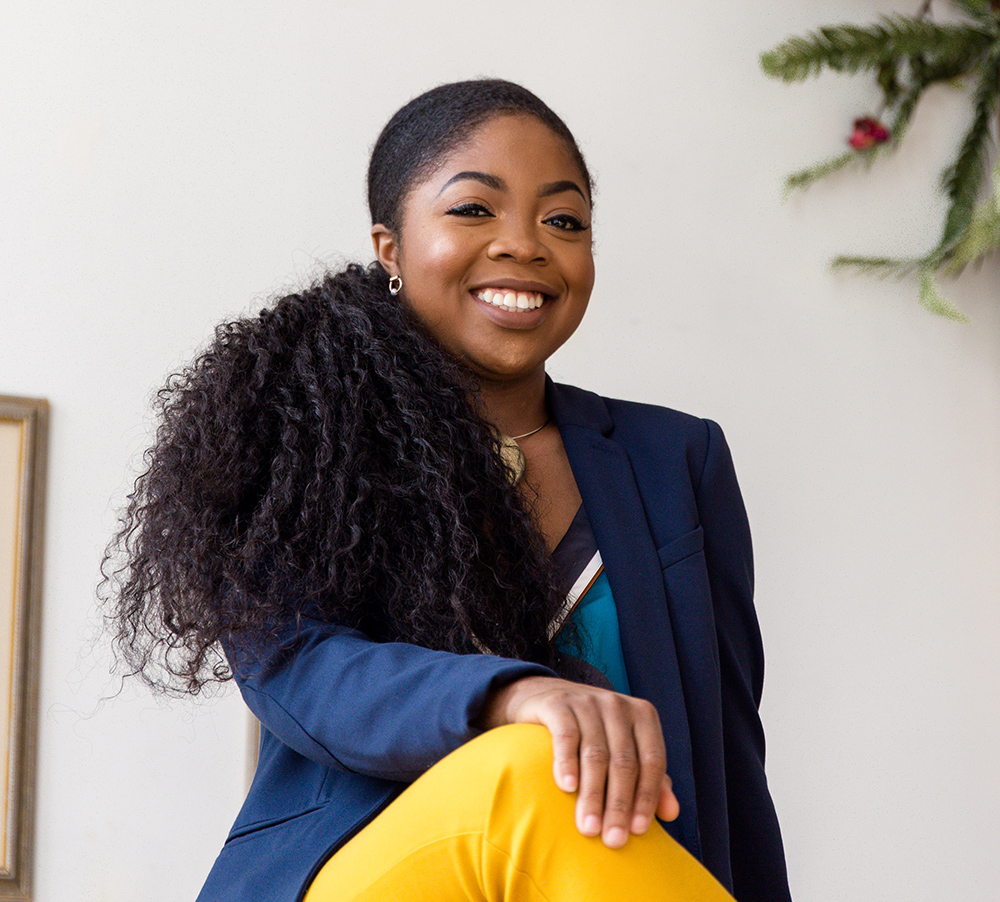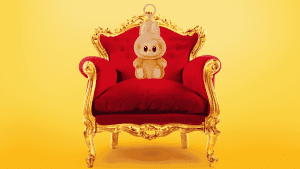Founder of Power To Girls, and DriveHER, Aisha Addo uses her personal experiences to create safe and engaging spaces for young girls and women.
Written by Holly Walker
After leaving Ghana and moving to Canada at the age of 14, Aisha Addo was thrust into new experiences, many of which were difficult to navigate due to a lack of resources.
Choosing what field to go into as a young adult was a time of uncertainty as Addo had no one to help guide her, ultimately choosing to attend George Brown College for accounting. While attending college, Addo realized there was a lack of mentors for girls from marginalized backgrounds; there weren’t spaces for girls who looked like her to talk about the issues they were facing on a day-to-day basis.
Finding herself reflected in many young girls, Addo created the Power To Girls foundation — a non-profit organization that offers young girls mentors and role models. What first began as a few girls from Addo’s church talking about their experiences, grew into a non-profit program that is in five schools, supported by the Toronto Catholic District School Board.
As the foundation grew in numbers, Addo knew the calling was much bigger than just Toronto. Taking it global, Addo created the Ghana Project, an initiative through Power To Girls to help educate, foster leadership and economic freedom.
While working with many of the girls, Addo often found herself taking on another role aside from founder — their designated driver. After a personal experience with a cab driver left Addo feeling unsafe, she began contemplating why, as a society, we have allowed ourselves to become desensitized to the feeling of discomfort, or lack or respect. Unwilling to accept this reality, Addo was determined to put thought into action and created DriveHER.
A ride sharing platform for women, DriveHER helps create safe spaces for women to travel within, while also helping to employ women as drivers in a space that has otherwise been male dominated. The app ran beta testing n March and is re-launching later this month.In the future, Addo hopes young women continue to be encouraged and included in the conversations that impact inclusivity for women. She sees both DriveHER and Power To Girls not as platforms, but as movements of women coming together to say ‘it’s our time, we demand more.’
Here she shares some insights.
What has been the greatest lessons and moments you’ve experience while working with young girls?
Patience and accountability. It’s also taught me restraint, and to be conscious of what I say, to be thoughtful before I speak. Especially in an educational setting, there’s a lot of things kids overhear that can influence them. Many girls have had people tell them they won’t amount to anything. Having the opportunity to tell them that doesn’t have to be their narrative and reinforce positive affirmations has been one of the things I love most about working with young girls.
Why was it important to take the Power To Girls initiative back home to Ghana?
It was always important to me to extend my work back home. I remember visiting Ghana and realizing, from a cultural perspective, that there are a lot of negative things that young girls are told about themselves, universally. The issues that girls faced here in Canada, were the same as those in Ghana, just with cultural differences. Here we use the school system to help implement these programs but in Ghana many young girls don’t even have the opportunity to go to school. We had to find a way to continue the work we were doing but also shine a light on the importance of education, and translate it to something on entrepreneurship so the girls in Ghana can go to school, but also make an income to help financially. That became the foundation of Project Ghana.
Why do you think it’s so important to invest in girls and women?
In this age, with things like the #MeToo movement, we see activism around equality and supporting women. For me, it’s about implementing the change and being intentional. Having conversations is great, but my question always is ‘What happens next?’ It’s important for girls to see themselves reflected in society. Many young girls get comfortable with the message society tells them; that certain jobs are meant for women. Working in many marginalized communities it’s important for girls to see women who look like them reflected in different positions, whether it’s a doctor, or a lawyer or other roles. Once young girls can see themselves represented, it’s easier to believe they can have that future too one day. We want to remind them that they deserve to be in all of these spaces. Until we take women seriously and truly listen to their experiences and what they are saying society will be at a disadvantage.
The entrepreneurial road can be trying. What has made it worth it?
Creating DriveHER was a lot of trial and error. I entered a space I wasn’t familiar with, where I didn’t see myself reflected, and it was male-dominated. Trying to navigate where to find resources was a challenge. A few months ago, I was exhausted, defeated and felt ready to quit. As I was going through this thought process, I happened to open an email from a young woman telling me about her own personal experience and why a service like DriveHER is so important to her. I started crying, it reminded me that this matters and it’s not just for me, it’s for other young women just like her. She is who I am creating this for. In that moment I recognized that all the ups and downs are worth it. That was a very significant moment.








